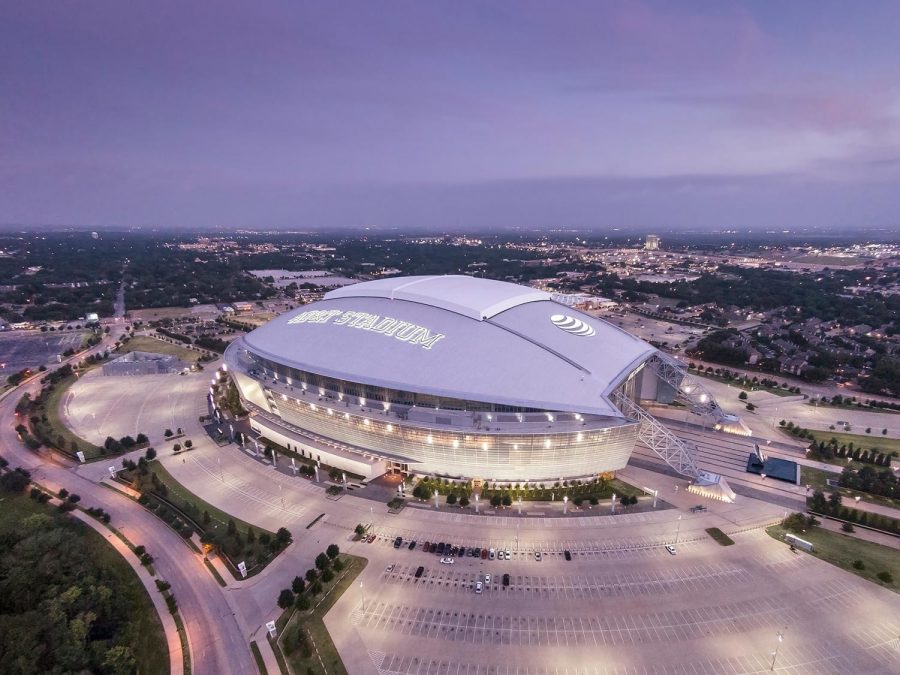The Cowboys seemed to have a promising post-season, but that was soon ruined when the San Francisco 49ers defeated the Cowboys in a wildcard game on Jan. 16 at AT&T Stadium.
Before the game, Dallas seemed destined to win despite San Francisco’s eventual 23-17 victory. ESPN had the Cowboys’ win probability at 69%, and they were in first place in the NFL offensively, while San Francisco’s offense was ranked seventh.
The game started to go downhill when the 49ers scored a touchdown in their opening drive of the first quarter, tanking the morale of quarterback Dak Prescott and his team.
The 49ers defense held the Cowboys’ wide receivers Amari Cooper and CeeDee Lamb off, but as much as Dallas tried to prevent 49ers quarterback Jimmy Garoppolo from throwing, his team ended up with a possession time of 33 minutes 57 seconds compared to the Cowboys’ 26 minutes 3 seconds.
One of the main challenges the Cowboys faced was the amount of penalties the team racked up. The team is known for their flags, being the most penalized in the NFL. In this game, their penalties totaled at 14, resulting in an 89 yard loss overall.
This impacted an otherwise sound play when punter Bryan Anger threw a fake punt at 4th and 5th with 14 minutes, 1 second left in the 4th quarter, intending to get the ball to cornerback C.J. Goodwin. Prescott and the rest of the offensive line was on the sidelines, while the penalty unit stayed on the field for the fake punt.
However, even though Goodwin caught the ball and ran a few yards, there was a false start penalty on Dallas which held them back to 4th and 15. The false start and play overall ran the clock down more than it should have.
In the fourth quarter, the Cowboys were trailing 23-17. With no timeouts left, 14 seconds on the clock and on a 3rd down with 11 yards to go, Prescott ran the ball to the 17-yard-line.
After Prescott’s run, he scrambled to make one more play as the clock continued to tick. Prescott collided with 49ers defensive players and referee Ramon George after the play.
The delay in repositioning led the clock to run out before another snap could occur. The referee abruptly ended the game, leading to a 49ers victory.
After the regulation ended, chaos arose. Fans started throwing garbage on the field, and commentators were unsure what had happened.
Head coach Mike McCarthy expressed that the referees would review the play and put more time back on the clock before the game ended, but that never happened.
Afterwards, referee Alex Kemp defended the decision to ESPN and said that the official on the field made no mistakes.
As confusing as the situation was, Dallas deserved to have the opportunity to get one more play in. While the referees were following the rules and doing their job, it seemed as though they couldn’t keep up with the play Dallas was trying to achieve, and so they let time run out. That was unfair. The Cowboys were justified in getting one more play after having the ball for less time than the 49ers.
However, there were faults in the Cowboys’ execution. It would have helped Dallas win in the time they had if Prescott ran the ball out of balance. If this happened, the clock would have stopped. Instead, Prescott ran the ball straight towards San Francisco’s defense.
Because of this, Dallas wasted time while Prescott was on the ground, and teammates hurried in order to get the ball to the end zone.
Overall, the game was a mess for the Cowboys.
Even though Prescott had 254 yards and a 23/43 ratio of completions to attempts compared to Garoppolo’s 172 yards and 16/25 completion-attempt ratio, he still failed to deliver a win for his team.
Running back Ezekiel Elliot also didn’t give his best in the game. Elliot only ran 31 yards throughout the whole game. This is unheard of especially for Elliott because he’s considered one of the best running backs in the NFL.
As a result of these athletic and technical shortcomings, as well as the situational factors of the game, we must face the disappointment of a Cowboys-less playoff season this year. The disaster that played out at AT&T Stadium proves that room for improvement still remains at all ends of the field.




